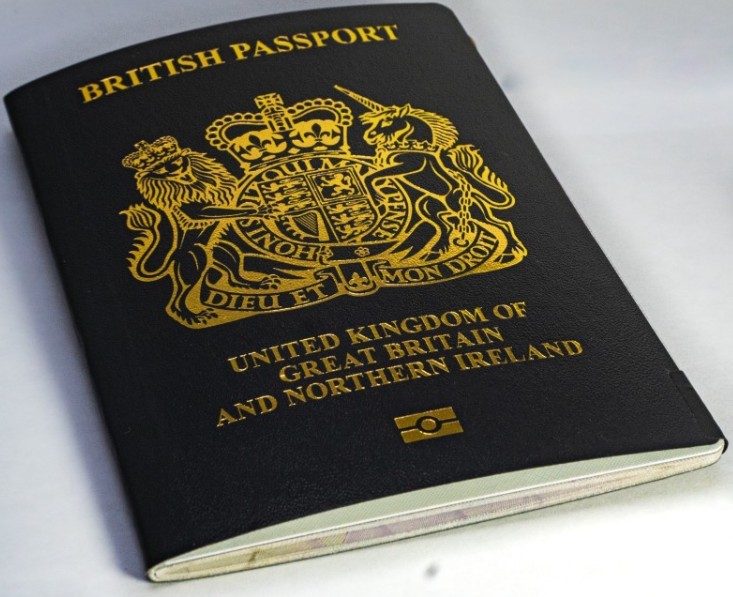After Brexit, the freedom of movement between the UK and Spain, as well as other EU countries, changed drastically for British citizens. The automatic right to live, work, and study in Spain no longer applies, and British passport holders must now navigate a new set of rules and regulations. However, Spain remains one of the top destinations for British expatriates, with many choosing to make the country their home.
In this guide, we will answer the critical question, “Can I live in Spain with a British passport?” and provide you with a detailed roadmap of what you need to know to successfully live in Spain as a British citizen post-Brexit.
What Has Changed After Brexit for British Nationals in Spain?

Brexit marked a significant change in the way UK citizens can live and interact with European Union (EU) countries, including Spain. Before Brexit, British passport holders enjoyed the right to live, work, and travel freely across Spain and other EU nations. However, with the UK now classified as a third-country nation, these freedoms no longer apply.
The core changes after Brexit include:
- End of Freedom of Movement: British citizens are no longer able to live or work in Spain without applying for a visa or residency permit.
- British citizens are allowed to stay in Spain for tourism or business for a maximum of 90 days within any 180-day window; however, if they plan to remain longer, they must apply for a visa.
- Residency Applications: To live in Spain for more than 90 days, British citizens must apply for a residency visa based on specific criteria such as work, income, or family relationships.
- Healthcare Access: British citizens can no longer use the European Health Insurance Card (EHIC) for healthcare in Spain. Instead, private health insurance or public health coverage is required.
Despite these changes, Spain is still an attractive option for British nationals looking to relocate, as long as they understand and follow the new regulations.
Can I Stay in Spain with a British Passport?
One of the first questions many British citizens ask is whether they can stay in Spain for more than 90 days. Under the new post-Brexit rules, the answer depends on your circumstances. UK citizens can travel to Spain for short visits of up to 90 days without a visa, but if you plan to remain in the country for a longer period, obtaining a residency visa is required.
Here’s a breakdown of the essentials for extending your stay in Spain past the 90-day limit.
The 90/180 Rule Explained

Under the revised 90/180 rule, British nationals are allowed to remain in Spain for a maximum of 90 days within any rolling 180-day period without needing a visa. Once this limit is reached, they must either exit the country or obtain a long-term residence permit.
For instance, if you stay in Spain from January through March, you’ll need to wait another 90 days before you’re permitted to re-enter. The key to navigating this rule is tracking your travel dates carefully, as overstaying the 90-day limit can lead to fines, deportation, or a ban from entering the EU for a set period.
How to Stay Beyond 90 Days?
If you want to stay in Spain for more than 90 days, you must apply for one of the following residency visas:
- Non-Lucrative Visa: This visa is ideal for retirees or people who wish to live in Spain without working. To qualify, you need to show proof of sufficient financial resources to support yourself during your stay. The income requirements for this visa vary but typically require a monthly income of around €2,000 to €2,500, depending on your situation.
- Work Visa: If you intend to work in Spain, you will need a work visa. This requires a job offer from a Spanish employer, who must prove that no suitable candidates from the EU were available for the role. Once you have a job offer, the next step is to apply for the appropriate work visa at the Spanish consulate in the UK.
- Self-Employed Visa: If you are an entrepreneur or freelancer, you can apply for a self-employed visa. This choice is ideal for individuals looking to launch their own business or pursue freelance opportunities in Spain. You will need to show that your business is viable and that you can support yourself financially through your work.
- Student Visa: British students who wish to study in Spain can apply for a student visa. This visa allows you to stay in Spain for the duration of your studies, and you must prove that you have sufficient funds to support yourself while studying.
- If you have an immediate family member who is either a Spanish national or a lawful resident in Spain, you may be eligible to apply for a family reunification visa, which permits you to join and reside with them in the country.
What About Health Insurance in Spain for British Expats?
After Brexit, British citizens living in Spain are no longer covered by the European Health Insurance Card (EHIC). This means you will need to have health insurance to live in Spain. There are two main options for health coverage:
1. Public Health Insurance
If you are employed in Spain, you will automatically contribute to the Spanish social security system, which provides access to public healthcare. If you are self-employed, you must also contribute to the system. Public healthcare in Spain is of high quality and relatively affordable, but you will need to register with the local social security office and obtain your health card (Tarjeta Sanitaria).
2. Private Health Insurance
For those who are not working or self-employed, or if you prefer private care, private health insurance is required to meet the residency requirements. Spain has a variety of private insurance options, and many British expats choose this route as it often provides faster access to medical care.
When applying for residency, you will need to prove that you have valid health insurance. This is a key part of the visa application process.
The Spanish Tax System and Its Impact on British Expats

Living and working in Spain for over 183 days in a year typically makes you a Spanish tax resident, meaning you’re obligated to report and potentially pay taxes on your global income to the Spanish tax authorities.
Tax Residency Rules
- You are considered a tax resident of Spain if you spend more than 183 days in Spain during the calendar year.
- If you are working in Spain, your employer will deduct taxes from your salary. If you are self-employed, you must file your taxes and pay the appropriate contributions to the Spanish social security system.
Tax Rates
Spain operates a progressive tax system, meaning the more you earn, the higher your tax rate will be. For income tax purposes, the rates range from 19% to 47% depending on your income bracket.
Cost of Living in Spain vs. the UK
For many British nationals, the cost of living in Spain is one of the key attractions. Spain is known for its relatively low cost of living compared to the UK, especially when it comes to housing, food, and transportation. However, costs can vary depending on the region.
Here is a comparison of typical living expenses in Spain and the UK:
| Expense | Spain (Monthly) | United Kingdom (Monthly) |
|---|---|---|
| Rent (1-Bedroom Apartment) | €600 – €1,200 (city center) | £800 – £1,500 |
| Utilities (Electricity, Water, Internet) | €100 – €200 | £150 – £250 |
| Groceries (per person) | €200 – €300 | £250 – £400 |
| Dining Out (per person) | €10 – €20 for a mid-range meal | £15 – £30 |
| Public Transportation | €40 – €60 (monthly pass) | £60 – £100 |
Is Spain Still an Attractive Destination Post-Brexit?
Despite the challenges brought about by Brexit, Spain remains one of the most popular destinations for British citizens looking to relocate. Here are some reasons why:
- Climate: Spain is known for its sunny weather, with long summers and mild winters, especially in regions like the Costa Blanca and Costa Brava. The Mediterranean climate is a major draw for retirees and those looking to escape the cold UK winters.
- Lifestyle: Spain’s lifestyle emphasizes a slower pace of life, with a focus on family, culture, and leisure. Expats often report a better work-life balance and a more relaxed way of living compared to the UK.
- Healthcare: Spain boasts a high-quality healthcare system, which ranks among the best in Europe. British citizens can access healthcare through Spain’s social security system or private health insurance.
- Expat Communities: Spain has long been home to a thriving expat community, and British nationals have historically been one of the largest groups. Many regions, particularly along the coast, offer established communities where you can easily connect with other Brits.
Conclusion: Can I Live in Spain with a British Passport?
In conclusion, “Can I live in Spain with a British passport?” The answer is a resounding yes. Although the process has changed post-Brexit, living in Spain is still an option for British nationals, provided you follow the new residency rules.
By applying for the appropriate visa, ensuring you have adequate health coverage, and understanding Spain’s tax system, you can enjoy all the benefits that living in Spain has to offer. Whether you’re retiring in a sunny coastal town or starting a new chapter in a vibrant city like Madrid or Barcelona, Spain remains an attractive and achievable destination for British citizens looking for a fresh start after Brexit.
Take the time to research the necessary steps, and soon you could be enjoying the Spanish lifestyle, with the Mediterranean sun shining down on you.






